Forspoken DirectStorage on test: Contrary to reports, there's no GPU performance hit on an RTX 4090
But weirdly, you will see higher fps on a hard drive if you're willing to wait
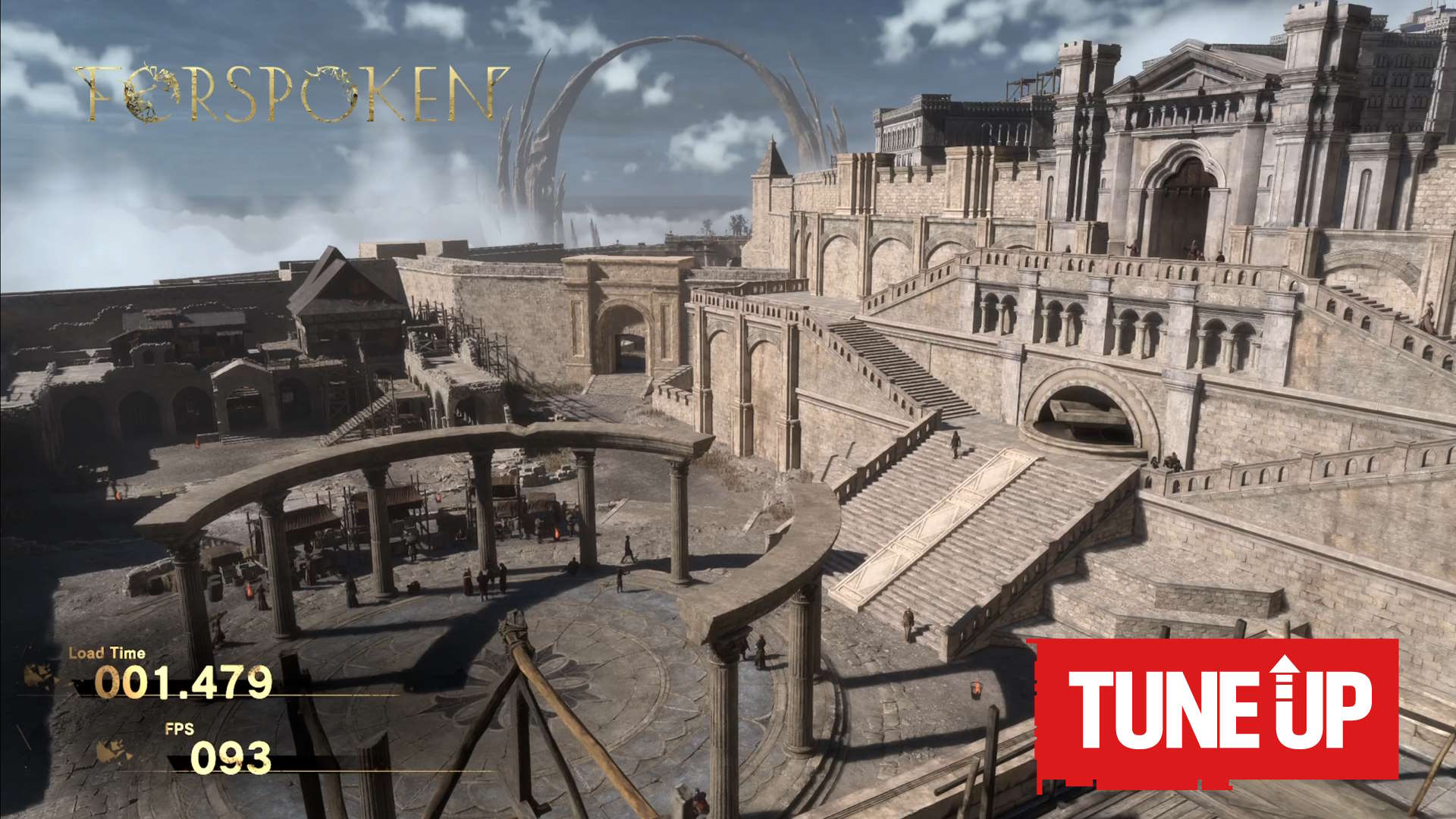
Y'know, something I didn't expect to see from my first experience with Microsoft's DirectStorage technology in Forspoken was that I'd see higher frame rates from running the game from a spinning platter hard drive than from an SSD.
Or then that I might have to wait an extra minute or so between loading screens, rather than the odd second, to get that nominal frame rate boost.
Some initial reports into Forspoken's performance across SSDs seemed to suggest that it might put extra load on the GPU that would affect your actual in-game performance. There were suggestions of a 10% slow down on an RTX 4090, which would be pretty drastic for a $1,600 GPU to take such a hit.
Thankfully, in real terms it doesn't have such an impact. Weirdly, unless you use a hard drive like a total masochist. But those higher HDD frame rates are likely less to do with DirectStorage taxing your GPU and more likely not loading the same assets.
We've tested the game on a variety of different drives just to see the difference DirectStorage can make. And not because I particularly want to get stuck into Forspoken, though I do kinda wish it was good.
Anyways, I've tested a bunch of drives, from the best PCIe 4.0 SSD, down to SATA and external SSDs, then all the way down to a wee 2.5-inch 7,200RPM hard drive I found at the back of the PC Gamer kit cupboard with some of Alan's old 'files' on them. Which I've hastily wiped clean.
Why should you care about DirectStorage?
But first, what is DirectStorage and why should you be interested in the first place? Basically, now that the two main consoles are both using solid state drive technology, there's an appetite for actually using the performance of SSDs to their fullest. Up to now we've still been somewhat limited to the lowest common denominator: the slow hard drive.
Keep up to date with the most important stories and the best deals, as picked by the PC Gamer team.
As much as we've had new PCIe drives and the introduction of the NVMe protocol, which massively changed how responsive an OS installed on it was and also how fast games could load, there were still limiting factors at play. Limited because hard drives were still a thing in some gaming PCs and all consoles.
Part of DirectStorage is about using the speed of the SSD memory and the interface it's built on to reduce the CPU overhead that occurs when shifting game data around system memory, decompressing it, and then sticking it into the GPU's frame buffer. DirectStorage is designed to streamline the process of taking that compressed game data off a drive and then rendering it.
The idea is that with DirectStorage all that happens simultaneously.
"DirectStorage is designed for modern gaming systems," says senior engineer at Microsoft, Cooper Partin. "It handles smaller reads really efficiently, and you can batch things together to get more work done. When fully integrated with your title, DirectStorage with an NVMe SSD on Windows 11 reduces the CPU overhead in a game by 20 to 40%. This is attributed to the advancements made in the file IO stack on Windows 11, and the improvements on that platform in general."
The latest version, DirectStorage 1.1, has added GPU-based decompression to the list of features, which means that instead of needing the CPU to do all the work, game assets are transferred directly to the GPU itself for decompression.
Now, Forspoken's directstorage.dll notes that it is the 1.1 version, but I'm not 100% sure whether the game is actually using the necessary GDeflate compression format that is meant to make it all run smoothly.
Still, I've used the game's built-in benchmark to run the engine through different drives, doing three distinct runs, to try and get a clear picture of what's happening. The test runs through seven different scenes, giving load times and frame rate metrics throughout.
DirectStorage performance
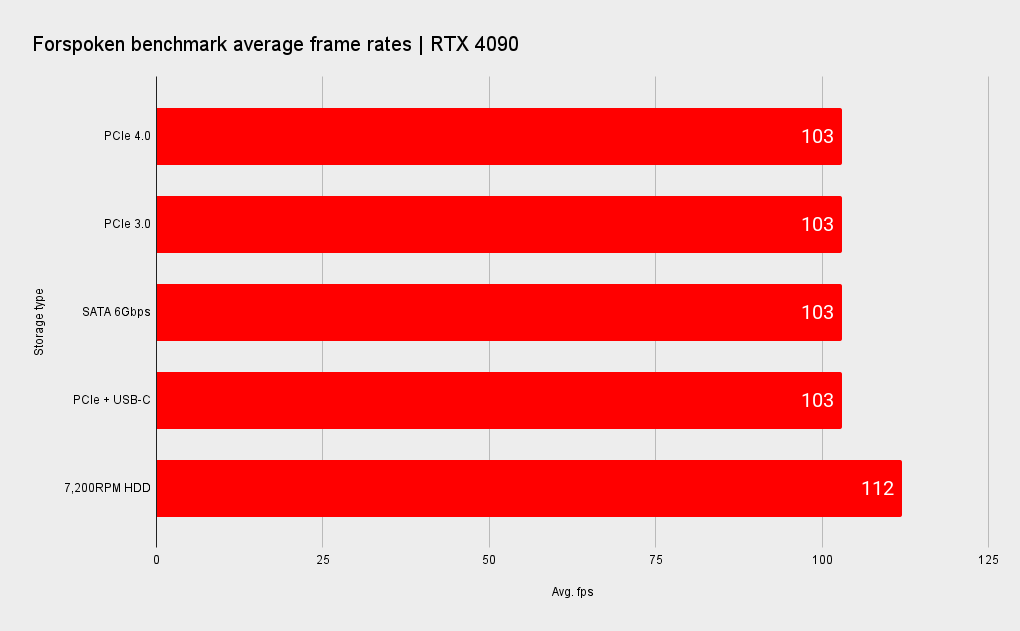
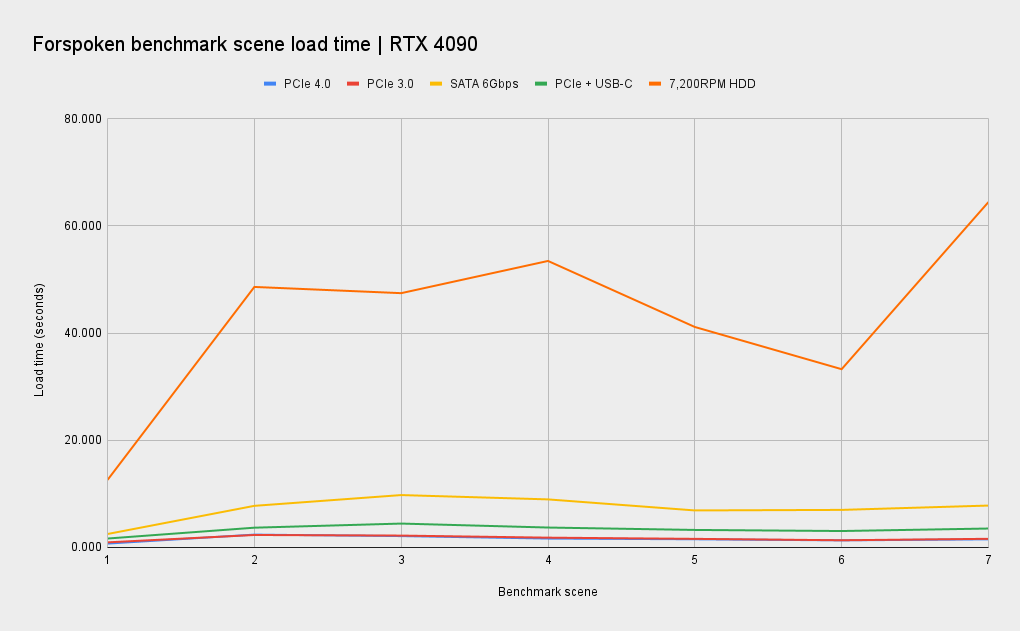
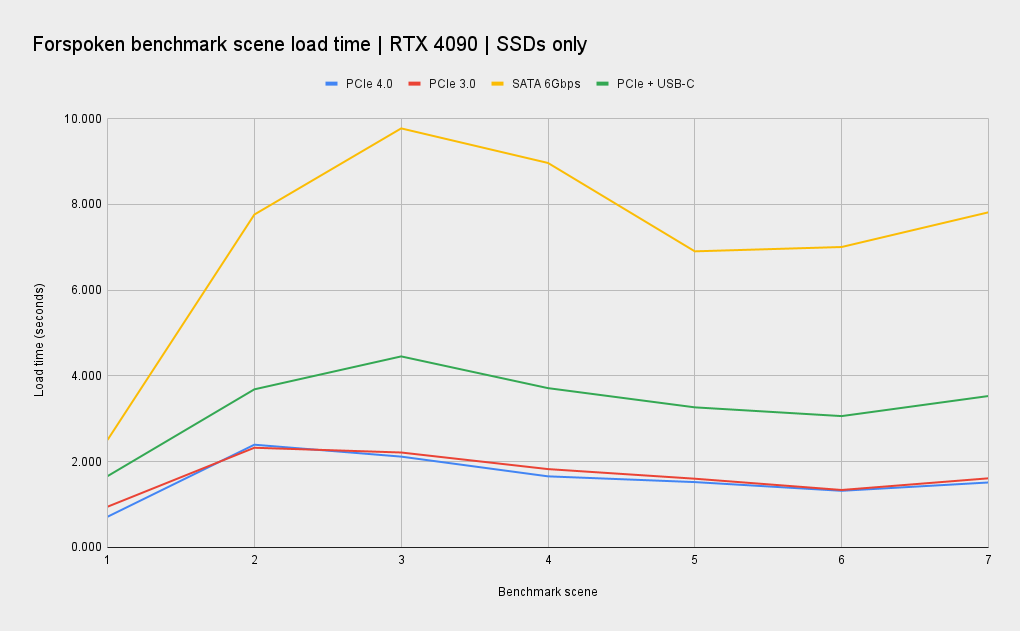
Motherboard: ASRock X670E Taichi
CPU: AMD Ryzen 9 7900
Cooling: AMD Wraith
Memory: G.Skill Trident Z5 DDR5 @ 6,000MHz
GPUs: Nvidia RTX 4090 FE | Gigabyte RTX 4070 Ti
OS: Windows 11
Storage: Corsair MP600 Pro XT 2TB | SK Hynix P31 1TB | Samsung 850 Pro 1TB | WD Black P40 500GB | Hitachi 7,200RPM 500GB
The end result? Well, something that should surprise no-one is your best bet is to use a PCIe 4.0 SSD. From my testing experience that will give you the best mix of rapid level loading—around 1 - 2 seconds in the benchmark scenes—as well as high average frame rates.
On this Zen 4 platform with an AMD Ryzen 9 7900, with an array of different drives and an RTX 4070 Ti and an RTX 4090 as the GPUs, I've not seen any level of frame rate difference between SSD types that would have me at all concerned.
I had wondered whether the earlier 10% deltas reported were down to using a third-party tool which also benchmarked the frame rate of the blank loading screens, and indeed PCGH, one of the main sources for the statements about diminished performance, have confirmed that's what happened.
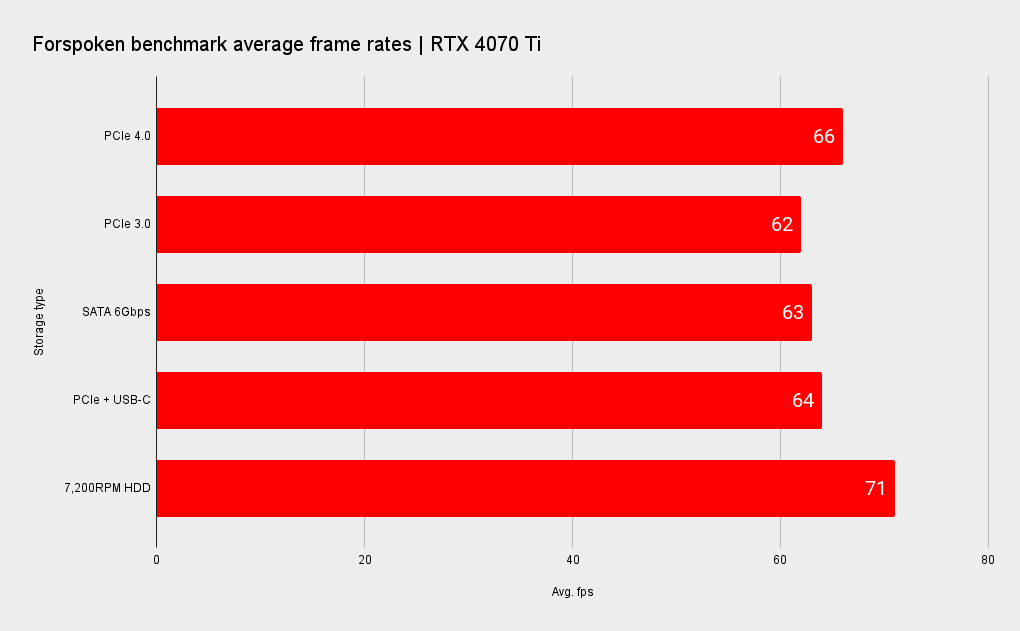
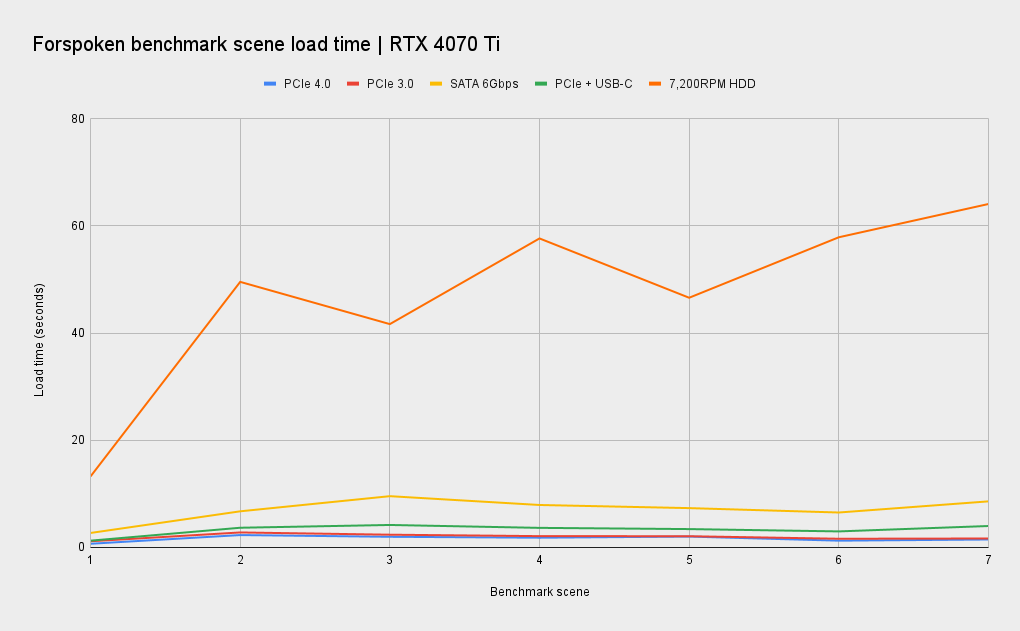
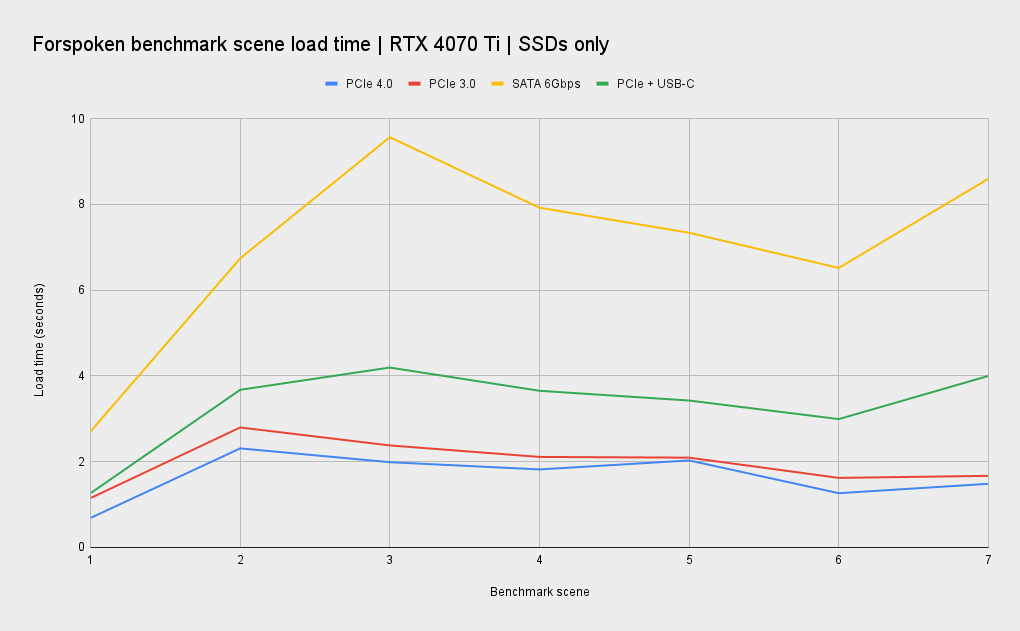
Something that should surprise no-one is your best bet is to use a PCIe 4.0 SSD.
But maybe the slightly confusing thing from my testing is just how much of an impact the use of a hard drive had on my raw fps. I saw a 8 - 10% increase in average frames per second, though how much of that is down to different assets loading, I'm not sure. The game warns that if you play the game on a hard drive you may not see things reproduced in the same manner as if you play from an SSD: "Installing the game on an HDD may cause some content to display incorrectly."
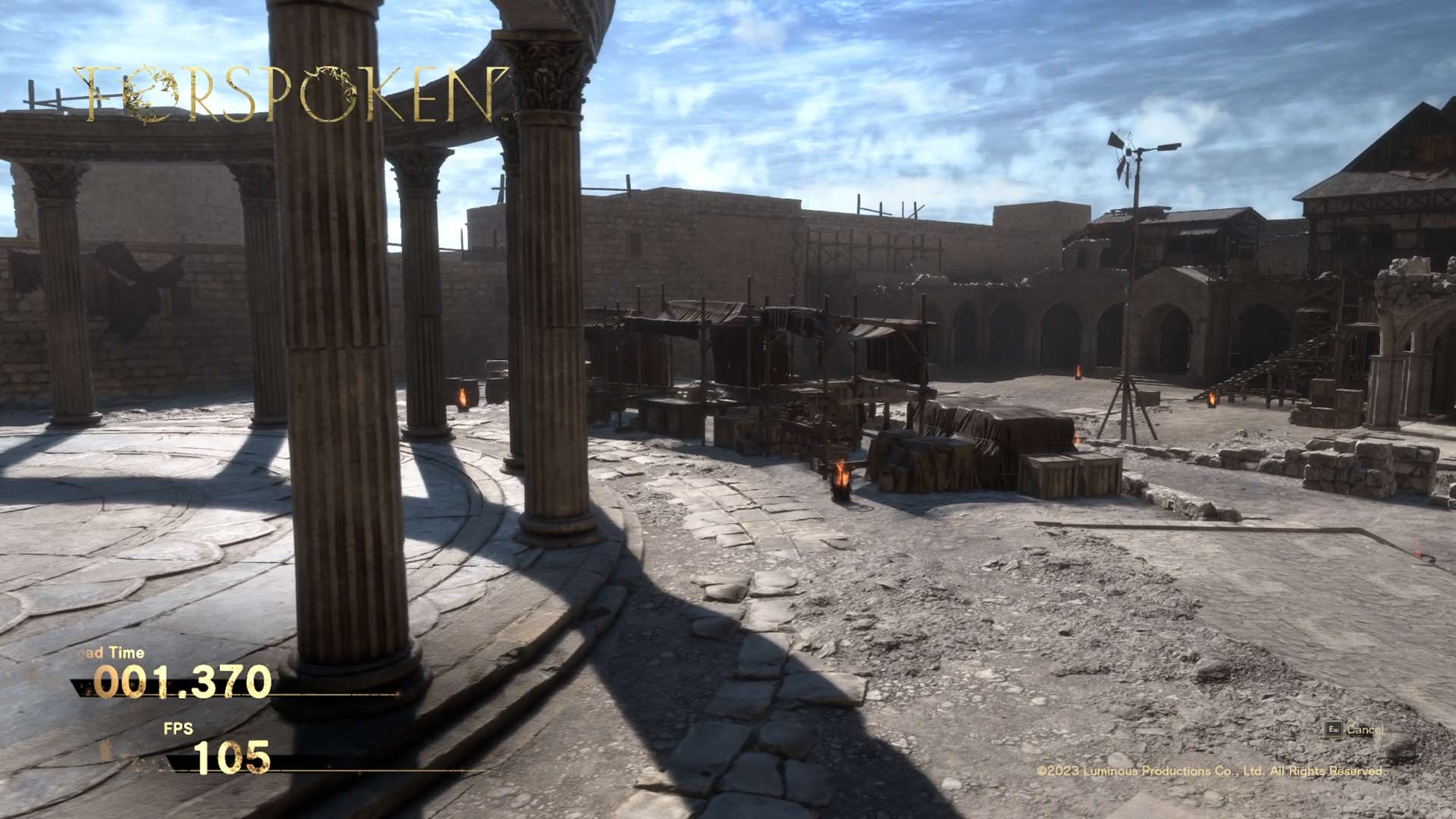
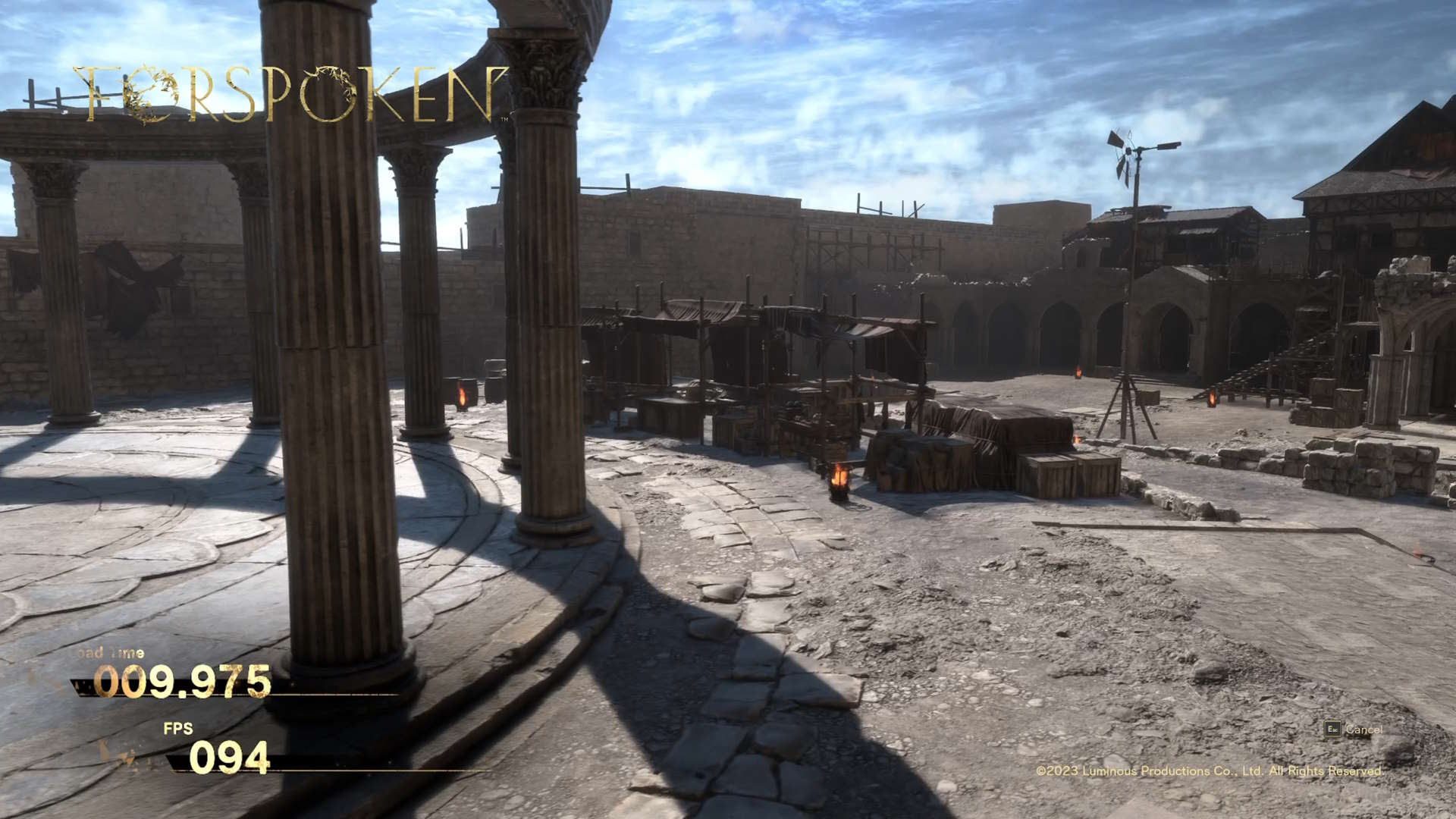
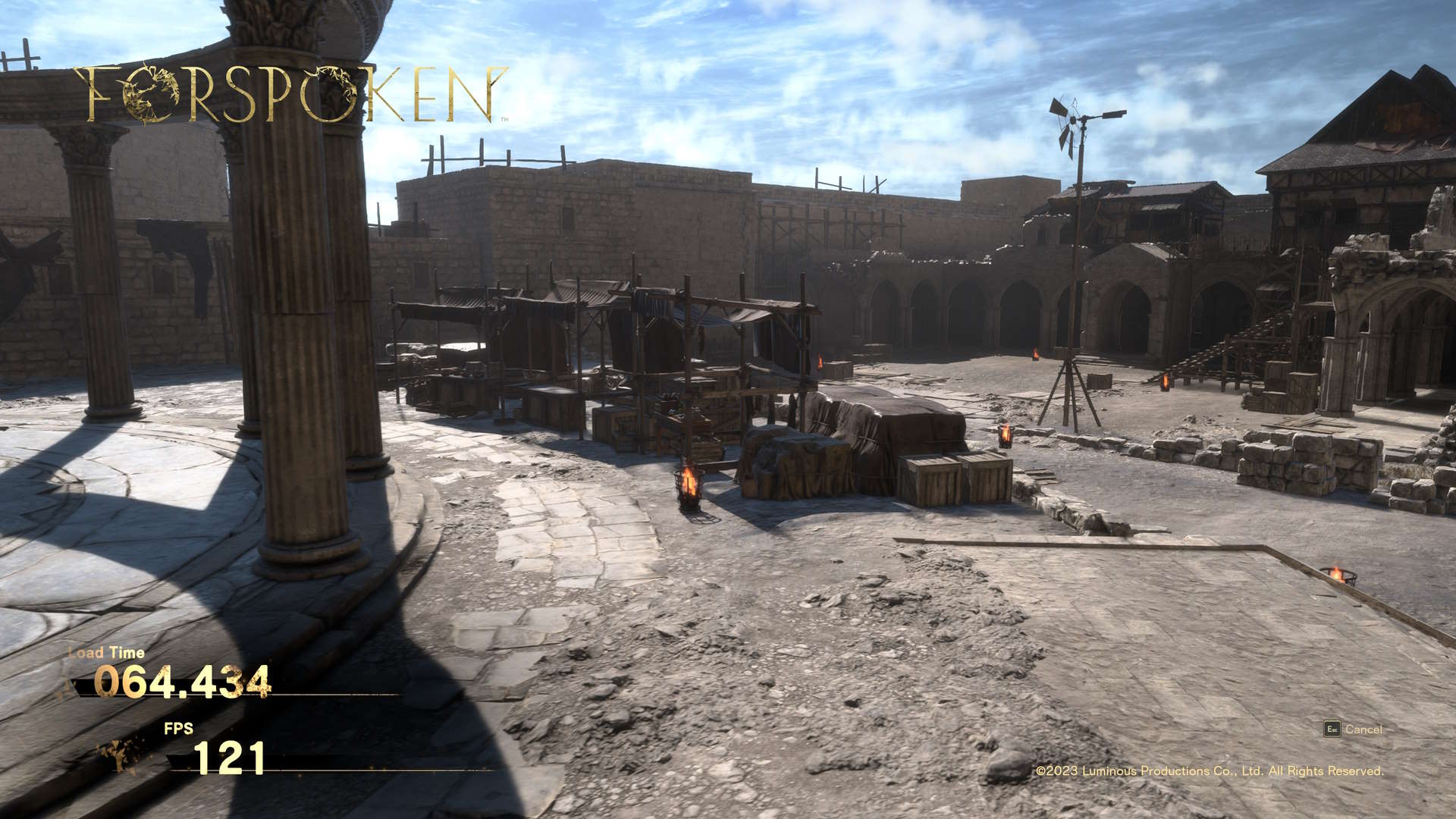
Honestly, I couldn't see any difference from a general inspection of the benchmark as it ran through the scenes from the 7,200RPM HDD I used, but it might well have been loading in lower-resolution textures and that's going to be easier and quicker for a modern GPU to render.
Still, I'm not willing to trade the extra five or ten fps that I was seeing on the hard drive for sometimes waiting almost a minute for a new scene. Around one second vs. one minute, in exchange for another five frames per second on average? Nah, I'm good.
Using the HDD for testing alone was a royal pain in the posterior. It took an age to copy across using Steam's library transfer and (thanks to our lightning office connection) it was quicker just to delete it from the drive and re-download it than copy it across to one of the SSDs again.
One second vs. one minute, for another five frames per second on average? Nah, I'm good.
I've also had to do an entirely separate benchmark graph to show the performance difference for the SSDs because the super-slow hard drive makes it impossible to parse the data visually.
Whatever the benefits of DirectStorage—which we probably won't know fully until more games actually take advantage of it—this all really highlights that no-one should still be using a mechanical drive for their game storage in 2023.
In all though, the loading speed of Forspoken is impressive and that's obviously in part down to the inclusion of DirectStorage. It's clear there is an amount of caching going on, as the benchmark load times do drop as you run and re-run the same tests before settling down.
There's also a difference in speed from continuing your latest save (really damned fast!) to loading an older alternative from your saved games. But in all, it's still a good debut for DirectStorage. We've not discovered any tangible performance difference across different SSDs in terms of frame rates ourselves, and where there might be a couple of fps here and there, it's still the fastest drives that deliver the higher performance across both load times and actual game performance.

Dave has been gaming since the days of Zaxxon and Lady Bug on the Colecovision, and code books for the Commodore Vic 20 (Death Race 2000!). He built his first gaming PC at the tender age of 16, and finally finished bug-fixing the Cyrix-based system around a year later. When he dropped it out of the window. He first started writing for Official PlayStation Magazine and Xbox World many decades ago, then moved onto PC Format full-time, then PC Gamer, TechRadar, and T3 among others. Now he's back, writing about the nightmarish graphics card market, CPUs with more cores than sense, gaming laptops hotter than the sun, and SSDs more capacious than a Cybertruck.

